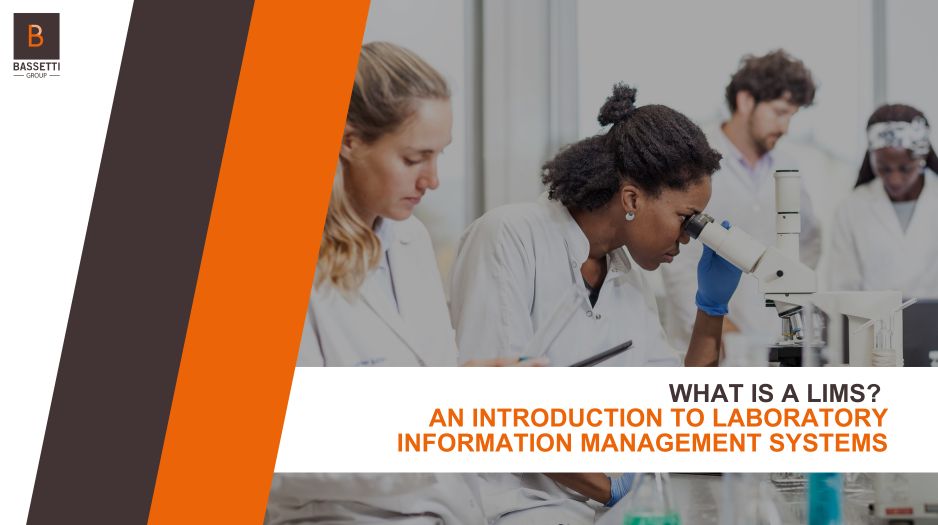What is a LIMS? An Introduction to Laboratory Information Management Systems
What does a LIMS do?
In a fast-paced scientific world, labs must increase their efficiency and accuracy to stay competitive. A Laboratory Information Management System (LIMS) can be transformative for this need. At its core, a LIMS is a powerful software solution built to seamlessly manage, track, and optimize operations and data flows within a lab.
A LIMS manages the entire lifecycle of samples, experiments, and results. It rigorously tracks everything from the moment a sample enters the lab, through every test and analysis, right up to the final results. This is crucial for both research and development (R&D) and quality control (QC), where precise tracking is non-negotiable.
Centralizing Your Lab's Knowledge
A key benefit of a Laboratory Information Management System is its ability to centralize your data. Helping you move away from relying on physical notepads and scattered spreadsheets, a LIMS aims to build a unified, secure, and shared technical repository. This transforms individual knowledge and siloed information into a collective knowledge hub for the entire lab. It allows the whole team to work from the same, reliable source of truth, drastically reducing errors and improving collaboration.
A Scalable and Customized Solution
Modern LIMS should be customizable to fit the unique structure and workflow of different labs and industries. Especially as your lab grows and its challenges evolve, your LIMS should be scalable, easily adapting to increased sample volumes or new types of experiments. This ensures your laboratory software remains a valuable asset and provides sustainable support for all scientific endeavors.

Key Benefits of Using a LIMS
Integrating a Laboratory Information Management System into your lab isn’t just about managing data, it’s a strategic investment that delivers tangible benefits across your entire lab operation. Here are the key benefits of investing in a LIMS:
Increased Lab Productivity
A LIMS significantly increases team productivity by automating tedious tasks, eliminating manual report generation and time spent searching for misplaced information. By digitizing these processes, a LIMS equips your team with the time to focus on what they do best.
Improved Data Quality and Reliability
Manual processes are prone to human error. A LIMS eliminates these errors through digitization and automation. Many LIMS offer an Electronic Lab Notebook (ELN) integration, which reduces repetitive data entry. Beyond error reduction, a LIMS improves overall quality by standardizing work methods and ensuring the reliability of your measurements, leading to more consistent and trustworthy results.
Guaranteed Compliance and Traceability
Traceability and compliance are necessities for labs, especially with increasingly stringent industry standards and regulations such as ISO 17025, 21 CFR Part 11, and Good Laboratory Practices (GLP). Integrating a LIMS makes adhering to these standards a key pillar of your operations. Through a comprehensive audit trail, it ensures full traceability of all data, samples, and user actions.
Boosted Strategic Impact
Beyond daily operations, a Laboratory Information Management System has a profound impact on your organization’s long-term success. It empowers managers with crucial performance indicators and centralized data, which enables data-driven decision-making. A LIMS allows your company to capitalize on its technical knowledge, transforming raw data into a valuable, actionable asset. This strengthens your lab’s credibility and competitive positioning in the market.
Common Challenges Labs Face
Today’s labs strive for precision, efficiency, and reliable results. Often, achieving these goals are undermined by challenges surrounding data management, traceability and the demands of Industry 4.0. These hurdles have the potential to impact both daily productivity and long-term success for a lab.
The Limitations of Manual and Outdated Systems:
- High risk of error: Relying on manual data entry is prone to human error. Even a simple typo can compromise the integrity of an entire data set, leading to flawed conclusions, wasted resources and consequences surrounding quality assurance.
- Lack of traceability: Using a manual system or scattered spreadsheets to retrace the complete history of a sample or experiment can become a real headache. Particularly when there’s an upcoming audit or investigation, it can be near impossible to manually track a sample’s entire lifecycle months after it takes place.
- Knowledge loss: With an increasingly dynamic job market, employee turnover is a reality labs must face. When experienced employees leave, their crucial knowledge is also lost. Without documentation of this knowledge, onboarding for new hires is slower, mistakes are repeated, and overall efficiency is drained. Investing in a solution that creates a collective knowledge hub is crucial to mitigate these risks and promote long-term success.
- Wasted time and resources: Did you know that over 50% of companies admit to losing business opportunities due to lack of relevant data? Poor data management not only impacts sales, it hinders innovation, efficiency and competitive advantage. Lew Platt, former CEO of Hewlett-Packard (HP), stated: “If only HP knew what HP knows, we would be three times more productive.” This emphasizes the value of shared, accessible knowledge within a lab.
Meeting the Demands of Industry 4.0
The scientific landscape is rapidly evolving with Industry 4.0, an era marked by pervasive digitalization, the Internet of Things (IoT) and artificial intelligence (AI). Industry 4.0 is pushing laboratories to adapt, expecting them to provide real-time, reliable data and integrate into larger digital value chains.
3 key expectations labs should meet include:
- Enhanced Digitization of Practices: To analyze the volume of data generated by modern tools and processes, labs need cutting-edge digitization for data analysis and actionable insights.
- Increased Traceability in Interconnected Environments: As systems become more integrated and automated, the need for end-to-end traceability is increasingly important. Every interaction, data point, and change must be logged to ensure integrity and meet regulatory demands.
- Greater Flexibility and Agility: The pace of change is accelerating. Labs must be able to quickly adapt to new research demands, shifting regulatory landscapes, and evolving market needs.
While these challenges are significant, they highlight the immense opportunities for labs willing to embrace modern solutions like a Laboratory Information Management System.
How TEEXMA for LIMS Solves These Challenges
Modern labs are facing significant challenges, but evolving with these challenges will bring about a necessary transformation in how they operate, leading to greater precision and impact. Laboratories need a robust, adaptable solution designed specifically for addressing these challenges.
TEEXMA for LIMS is an end-to-end Laboratory Information Management System, meticulously engineered for customizability and scalability to meet your precise requirements. It stands as the strategic partner for navigating the intricate complexities of today’s scientific landscape
Modular and Adaptable To Your Lab’s Challenges
TEEXMA for LIMS offers a set of specialized modules that can be configured to create a solution aligned with your laboratory’s structure and goals. Whether you need an Electronic Lab Notebook (ELN) for streamlined experiment documentation, dedicated modules for R&D, robust Quality Control, precise Laboratory Execution Systems (LES), or other specific functionalities, TEEXMA for LIMS provides the building blocks.
Integrated and Accessible for Every Lab
TEEXMA for LIMS is engineered for seamless integration with existing systems, such as ERP (Enterprise Resource Planning) and MES (Manufacturing Execution Systems). It connects directly to your diverse range of lab equipment, automating data capture and reducing manual intervention.
To ensure accessibility for labs everywhere, TEEXMA for LIMS offers flexible deployment. It’s available in both SaaS (Software as a Service) cloud-based versions for agility and ease of access, as well as traditional On-Premise versions for those requiring full control over their infrastructure. It’s available on any device, empowering your team wherever they’re working.
Supportive of AI in the Lab
AI models require large volumes of high-quality, structured data. TEEXMA for LIMS provides this by centralizing and standardizing diverse experimental data into a clean, consistent format, ideal for AI algorithms to identify patterns and generate insights. By automating data capture, our software minimizes errors, guaranteeing the high-quality data crucial for accurate AI analysis and preventing flawed outcomes.
TEEMXA for LIMS maintains a complete audit trail for samples and experiments, linking data to its origin and processes, which provides rich metadata that enhances the interpretability and reliability of AI insights. As a central repository, the software facilitates data access and sharing by providing structured access to laboratory data, enabling seamless integration with AI tools for advanced analytics. By providing structured, high-quality, and accessible data, TEEMXA for LIMS empowers labs to harness AI, accelerating discovery and innovation.
Built on 30+ Years of Expert Knowledge
Partnering with an experienced provider is crucial when choosing a Laboratory Information Management System for your lab. With over 30 years of expertise in technical data management, BASSETTI Group offers a wealth of knowledge and a deep understanding of laboratory operations.
Our commitment to innovation and customer success ensures you’re investing in a comprehensive, proven solution backed by decades of industry experience and research.
Choosing TEEXMA for LIMS is your pathway to enhanced productivity, unwavering quality, complete compliance, and a strategic impact on the future of your organization.
